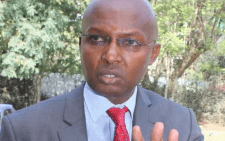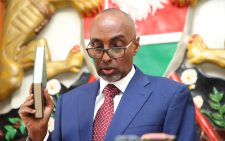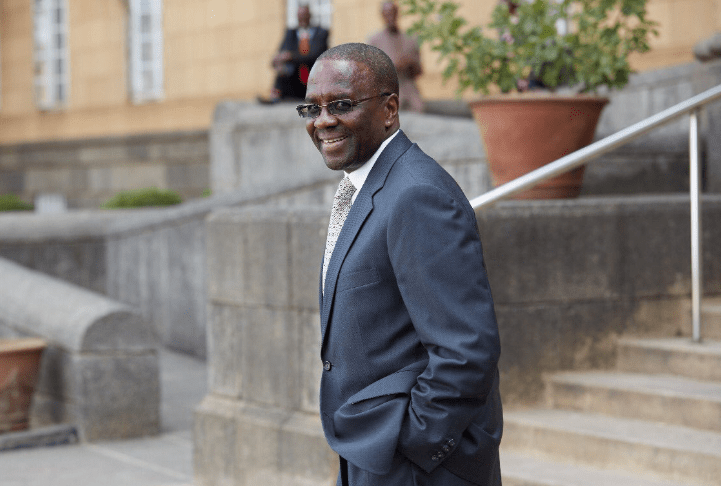Counties owe Sh158 billion in pending bills, CoB reveals

Counties with pending bills should finalise the verification process and submit a comprehensive list for monitoring by the office of the Controller of Budget (CoB).
During a meeting with senators, CoB Margaret Nyakang’o also disclosed that cumulative outstanding pending bills as at February 28 stood at Sh158.02 billion.
The amount comprises of Sh157.18 billion by the County Executive and Sh1.63 billion by County Assemblies.
Of the amount, Nairobi City County has Sh100.36 billion in pending bills, followed Wajir (Sh5.50 billion), Kiambu (Sh4.98 billion), Mombasa (Sh4.97 billion), Machakos (Sh2.88 billion) and Murang’a at Sh2.75 billion.
The counties with the least pending bills include Elgeyo Marakwet (Sh14.3 million), Lamu (Sh40.1 million), Nyamira (Sh107.3 million), West Pokot (Sh132.1 million) and Nyeri (Sh193 million) respectively.
County Assemblies with nil pending bills include Wajir, Vihiga, Tana River, Bomet, Elgeyo Marakwet, Kajiado, Kakamega, Kericho, Kilifi, Kirinyaga, Kisumu, Lamu, Mandera, Meru, Murang’a and Nyamira.
County Assemblies with the highest pending bills are Marsabit (Sh298.5 million), Nairobi (Sh200.4 million), Kwale (Sh173.2 million), Homa Bay (Sh93.8 million), Machakos (Sh84.3 million), Kiambu (Sh76.8 million) and Isiolo (Sh45 million).
When she appeared before the Devolution Committee of the Senate, Nyakang’o said counties had formed internal committees to verify pending bills.
“Following the change in the administration of the County Governments after the August 2022 General Election, many Counties formed internal committees to verify the pending bills, and 12 counties have submitted reports from the verification process,” said Nyakang’o.
Lamu, Vihiga, Uasin Gishu, Murang’a, Machakos, Siaya, Kakamega, Kwale, Turkana, Laikipia, Nyamira and Kitui have verified their pending bills.
Already Lamu, Vihiga and Uasin Gishu have provided a payment plan amounting to Sh40.1 million, Sh953.53 million and Sh397.57 million respectively.
In Murang’a County, the internal committee found that pending bills amounting to Sh2.11 billion were ineligible for payment.
The verification revealed that although Turkana County Executive had reported pending bills worth Sh4.02 billion, Sh1.85 billion was found to be ineligible. Kitui had reported Sh2.56 billion but recommended that only Sh1.43 billion should be paid.
The COB has written to all the 47 county governments to finalise the verification process and submit a pending bills report with the payment plan for implementation and monitoring.
According to Nyakang’o, all eligible or verified pending bills should be budgeted as a first charge in the budget in line with Regulation 55 (2) (b) of the Public Finance Management (County Governments) Regulations, 2015.
Nyakang’o recommends that spending entities should prepare payment plans for the verified pending bills, and enforcement mechanisms should be followed to ensure adherence, adding that incoming administrations should employ the First Incurred First Out (FIFO) criterion to settle pending bills.
She further recommends that the National Treasury should disburse funds to spending entities and align with approved disbursement schedules and cash flow plans.
“Independent verification of the current status of pending bills is to be done by the Office of the Auditor General or any other established PFM institution,” said Nyakang’o. During the Intergovernmental Budget and Economic Council (IBEC) meeting in January 2023, the Auditor General expressed reluctance to verify pending bills that she would be expected to audit at the end of the financial year.
According to the Controller of Budget, pending bills may be due to underperformance in Own Source Revenue leading to budget deficits and unfunded commitments, and failure by spending entities to align their procurement plans to cash flow plans and approved budgets.
Nyakang’o said delays in approval of Supplementary Budgets and failure to adopt prior year pending bills in the revised budget lead to settlement delays.
On Tuesday, Nyakang’o told Wajir Senator Abbas Mohamed-led Committee that delays by the National Treasury in disbursing funds to spending entities on a timely basis lead to outstanding payments at the end of the financial year, adding that diversion of funds meant to pay pending bills to other activities or suppliers also contributes to pending bills.
“Political interference and refusal by successive governments to honour existing obligations lead to the accrual of pending bills,” said Nyakang’o.
She told the lawmakers that Integrated Financial Management Information System (IFMIS)-related challenges, such as allowing of de-commitment of a valid IFMIS commitment can create room for more expenditure and could also lead to pending bills.







